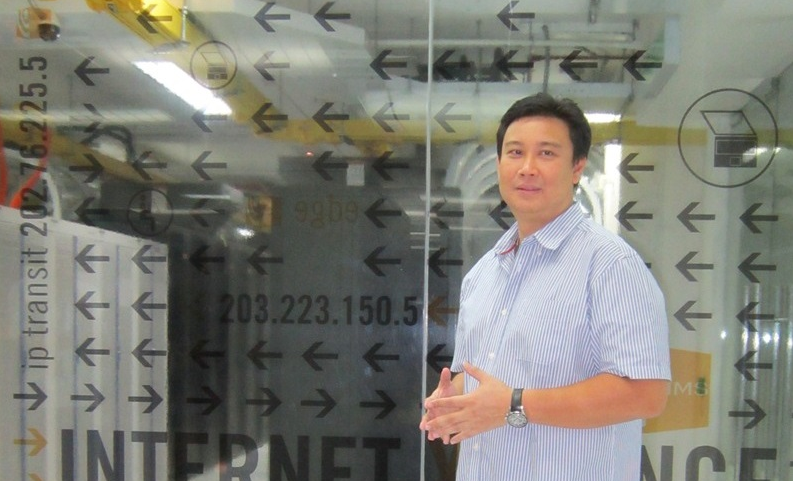KUALA LUMPUR: The SME Association of Malaysia (SME Association) and National Tech Association of Malaysia (PIKOM) are calling for more local players to be included in the building and management of hyperscale data centres as well as for the provision of hybrid cloud services.
Under the MyDIGITAL initiative which comes under the National Digital Economy Blueprint announced recently, the government has given conditional approvals for Microsoft, Google, Amazon and Telekom Malaysia Bhd (TM) to fulfil this objective.
This in line with the government’s aim of migrating 80% of public data into the hybrid cloud system by the end-2022 under the ‘cloud first’ strategy.
However, SME Association vice president Chin Chee Seong (pic above) said in a statement that this initiative should also be broadened to include more local data centre providers so as to “further develop local talent, skills and IP (intellectual property) for Malaysia”.
“Some of our local data centre providers are already of world-class standing, with quite a number already supporting multinationals and organisations here in Malaysia and throughout the region,” said Chin, who is also Malaysia Cross-Border e-Commerce Association national president.
“The SME Association is fully supportive of this ‘cloud first’ initiative as it would result in more efficient management and collection of data, coupled with lower cost in managing information technology long term.
“Cloud services also bode well for more efficient technologies such as big data, AI, IoT (Internet of things) and other technologies which enhance government services. However, we are urging the government to broaden the selection beyond the four companies (Microsoft, Google, Amazon and TM) to also include other local leading data centre players,” added Chin.
Chin explained that, in recent years, the Malaysian data centre market was on an upward trajectory, largely fuelled by both local and international providers.
“The reason for such strong growth stems from our ‘lower base’ as compared to mature markets such as Singapore, Hong Kong and Japan. Today, data centres in Malaysia with our enhanced data speeds serve end-consumers in other regional densely populated cities coupled with increases in local demand,” said Chin.
“Our local ecosystem, as it stands, has the expertise and technologies to also build hyperscale data centres to challenge the competition in other markets like Hong Kong and Singapore,” said Chin.
A hyperscale data centre usually has thousands of servers linked with ultra-high-speed, high fibre count network to offer robust, scalable applications and storage portfolio of services to businesses.

PIKOM Chairman Danny Lee concurred, stating that “adopting a level playing field – and one that’s inclusive of local data centre providers – would ensure that the industry would continue to thrive”.
“Currently, TM is the only local company earmarked for this initiative. We should not forget other local players which have successfully built up this market for Malaysia, so much so that our country is also known as an ideal location for business continuity and disaster recovery,” said Lee.
“Thanks to efforts from our local data centre providers, Malaysia is also is increasingly becoming a regional hub for various industries such as manufacturing, logistics and big data analytics. As more organisations embark on investing in cloud systems, the need for more local data centres is set to rise – and we expect the market in years ahead to be exponential,” he added.
“Hence, we urge the government to include local players – which have built the data centre industry to be what it is today – to continue to be part of this growth moving forward,” Lee further said.

Meanwhile, Malaysia Internet Exchange (MyIX) chairman Chiew Kok Hin hopes that the government would eventually provide more details and greater clarity about the MyDIGITAL plan for hyperscale data centres and managed service providers (MSPs).
“Currently, what has been disclosed thus far are just broad strokes of the overall ‘cloud first’ strategy, and MyIX believes that execution is just as critical for Malaysia to realise its aspirations of becoming a data centre hub in Asia-Pacific,” said Chiew.
Chiew explained that Malaysia has its strengths in internet infrastructure due to our strategic geographical location, ease of access and relatively lower cost of entry.
“Hence, government policies should always be investor-friendly if we are to continually attract foreign investors into Malaysia. At the same time, we should also recognise local data centre providers for their ongoing efforts in growing this industry,” concluded Chiew.
This content is provided by the SME Association of Malaysia and PIKOM.
Interested in having your announcements on Malaysiakini? Contact the announcements team at [email protected] or WhatsApp on +60 17-323 0707 for urgent matters.

